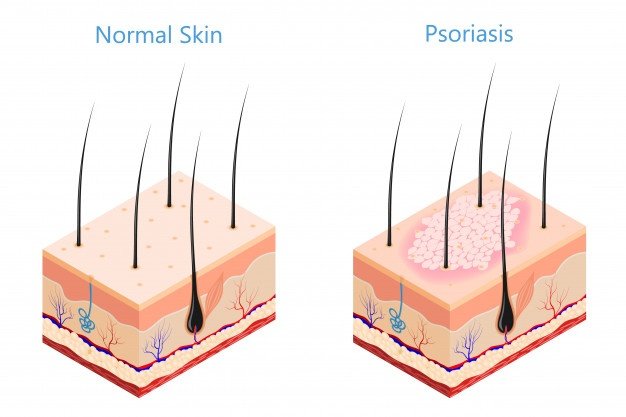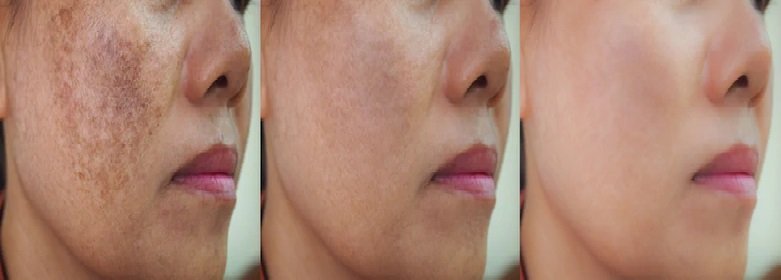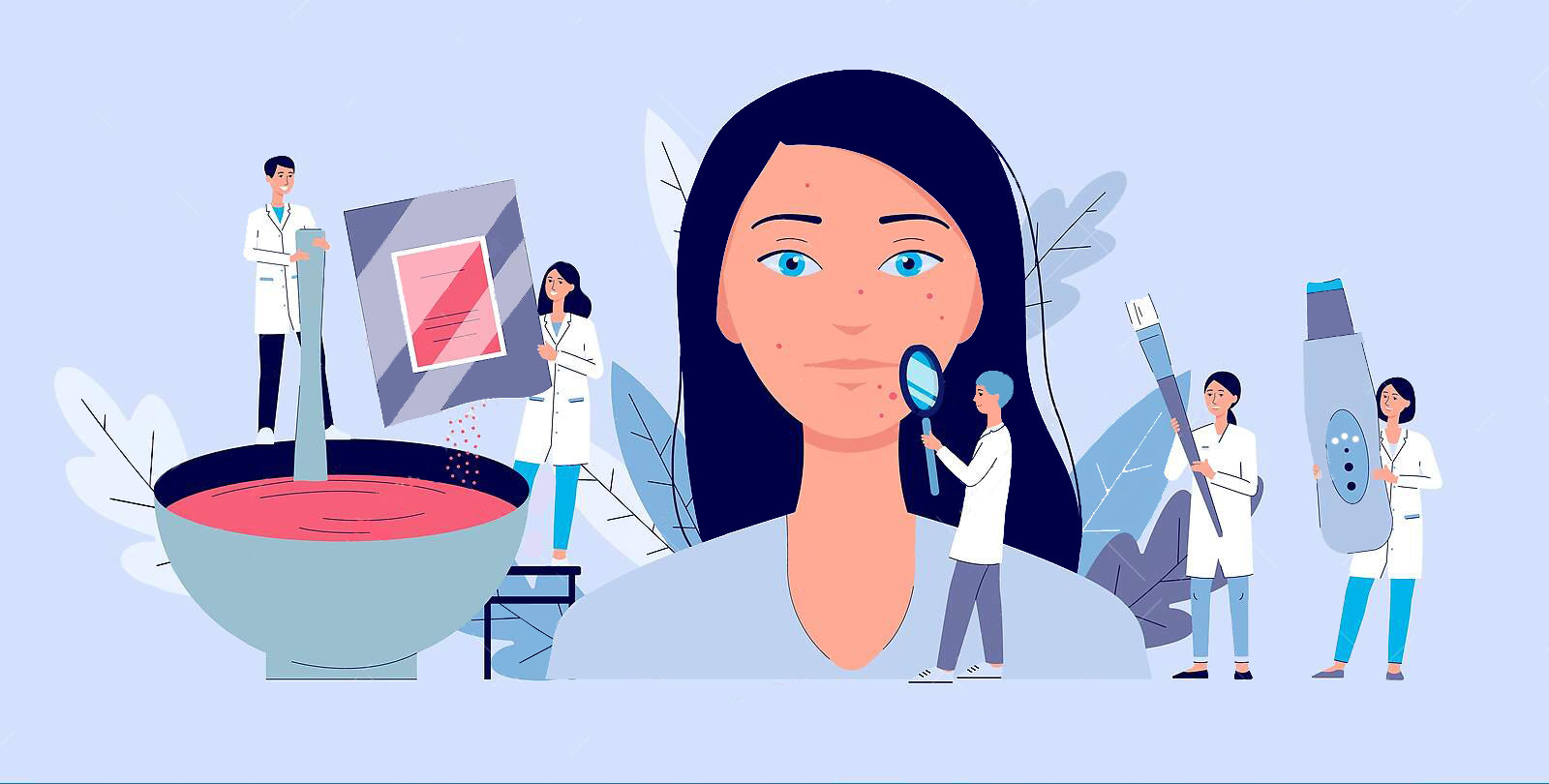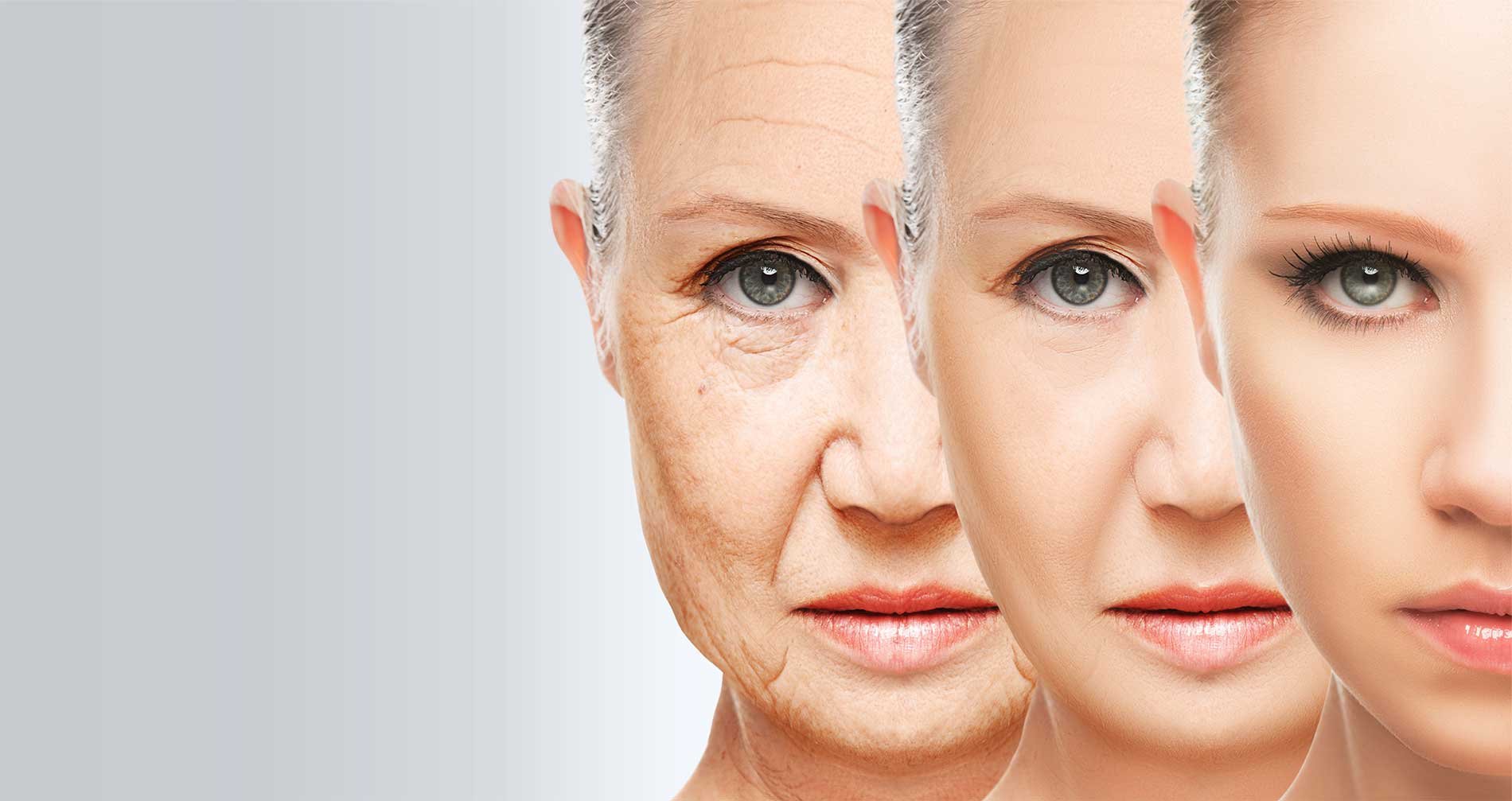Overview
Iron is an essential mineral that plays a crucial role in the production of hemoglobin. A protein found in red blood cells that carries oxygen throughout the body. Iron deficiency occurs when the body doesn't have enough iron to produce hemoglobin. This leads to one common but often overlooked symptom. These are changes in skin pigmentation that can include paleness, dark circles under the eyes, and yellowing of the skin.
In some cases, the skin may even develop patches of darker pigmentation. Iron deficiency is most common in women. It can be caused by an inadequate diet, certain medical conditions, or blood loss due to heavy menstrual cycles.
The good news is that iron deficiency can be treated with dietary changes or iron supplements, which restore healthy skin pigmentation.
The purpose of this blog is to provide an in-depth look at the relationship between iron deficiency and skin pigmentation.
We'll look at the causes, symptoms, diagnosis, and treatment of iron deficiency, as well as the use of iron supplements.
By the end of this post, you will have a better understanding of how iron deficiency can impact skin pigmentation and what steps are required to address this issue.
Are you facing skin pigmentation issues due to an iron deficiency? Iron deficiency can lead to anemia, which in turn can cause skin pigmentation problems.
Let's read it out in detail further!
Can iron deficiency lead to skin pigmentation?
The simple answer is yes! Iron deficiency can increase the risk of skin pigmentation.
Wondering how?
Get the answer below!
Iron deficiency can cause skin pigmentation changes in a few different ways.
As one of the key roles of iron in the body is to help produce melanin, the pigment that gives color to the skin, hair, and eyes. When iron levels are low, the body may not be able to produce enough melanin, which can lead to changes in skin pigmentation.
Iron deficiency can also lead to a condition called anemia, which can cause paleness or a yellowish tint to the skin. In severe cases, the skin may appear almost white or very pale, and the nails may be thin and concave. This is because when the body doesn't have enough iron to produce hemoglobin. The protein that carries oxygen in the blood can't deliver enough oxygen to the skin and other tissues. This can cause the skin to appear paler than usual.
Another way that iron deficiency can impact skin pigmentation is through the development of dark circles under the eyes. This can happen because when the body is low on iron, it can lead to a buildup of blood in the veins under the eyes, causing them to appear darker than usual.
Genetics and ethnicity can also influence the relationship between iron deficiency and skin pigmentation.
Overall, iron deficiency can have a significant impact on skin pigmentation, and it's important to address this issue to restore healthy levels of melanin production and improve the appearance of the skin.
According to Ana Vasilescu Founder and certified skincare consultant of women concepts stated that -
"Yes, genetics and ethnicity can influence the relationship between iron deficiency and skin pigmentation. Iron supplements alone may not be enough to reverse skin pigmentation changes caused by iron deficiency and additional interventions such as dietary changes and other lifestyle modifications may be necessary. Changes in skin pigmentation due to iron deficiency differ from other skin conditions or disorders as the discoloration is usually more subtle and is often found in areas around the eyes, mouth, and knuckles. The long-term consequences of untreated iron deficiency-related changes in skin pigmentation are not yet well understood but can include an increased risk for anemia and other health problems."
It's important to address iron deficiency to restore healthy levels of melanin production and improve skin pigmentation.
We'll be exploring the different tests and steps that can be taken to diagnose iron deficiency, so let's get started!
How is iron deficiency diagnosed?
A medical evaluation is the only way to diagnose iron deficiency, which is one of the most common nutrient deficiencies in the world.
Diagnosing iron deficiency requires a medical evaluation and a few tests like -
- Levels of hemoglobin, hematocrit, and red blood cells in the blood.
- Low levels of hemoglobin, hematocrit, and red blood cells can state iron deficiency.
- A serum ferritin test may also be performed to measure levels of ferritin, a protein that stores iron in the body.
- Low levels of ferritin can also state iron deficiency.
- A physical examination may also be performed to look for signs of iron deficiency. Such as pale skin, thin and concave nails, and a swollen or sore tongue.
More tests may be performed to determine the underlying cause of iron deficiency, such as a fecal occult blood test to check for gastrointestinal bleeding or a test for celiac disease to check for absorption issues.
Please Note: If you delay treating iron deficiency, it may cause a variety of health problems, including fatigue, stress, anemia, and weakened immunity.
Nowadays do you feel tired and run down? Iron deficiency may be to blame.
Learn more about the symptoms!
Symptoms of Iron Deficiency

Types of Pigmentation Caused by Iron Deficiency?
Iron deficiency can cause many different types of pigmentation. These can range from mild to severe and can either be localized to a single area or affect the entire body.
Some of the more common types of pigmentation caused by iron deficiency include

You may be surprised to learn that a simple iron supplement could be the key to improving the pigmentation of your skin.
Excited?
Read Along!
Can iron supplements help improve skin pigmentation?
Iron supplements may help improve skin pigmentation if the pigmentation changes are due to iron deficiency.
When the body does not have enough iron, it may not be able to produce enough melanin, which handles skin pigmentation. Taking iron supplements can increase the body's iron levels, allowing it to produce more melanin and improve skin pigmentation.
However, it's important to note that not all changes in skin pigmentation are due to iron deficiency.
Before starting iron supplements, it's important to talk to your dermatologist and determine the underlying cause of the skin pigmentation changes.
As they may recommend blood tests to check iron levels and other tests to determine the cause of the pigmentation changes.
Please Note: Taking too much iron can be harmful and cause side effects such as constipation, nausea, and vomiting.
If you’re considering taking iron supplements, you’re likely aware of the potential benefits. However, it’s also important to be aware of the potential risks associated with taking these supplements. We’ll discuss the potential risks of taking iron supplements and how to stay safe.

What are the potential risks of taking iron supplements?
While iron supplements can be helpful for treating iron deficiency, there are potential risks associated with taking them.
Here are some of the potential risks of taking iron supplements:
- Gastrointestinal side effects: Iron supplements can cause gastrointestinal side effects such as nausea, vomiting, diarrhea, and constipation.
- Iron overload: Taking too much iron can lead to iron overload, which can be toxic and cause damage to organs such as the liver and heart.
- Interactions with other medications: Iron supplements can interact with certain medications, including antibiotics and thyroid hormone replacement therapy, reducing their effectiveness.
- Staining of teeth: Liquid iron supplements can stain teeth, so it's important to rinse the mouth after taking them.
- Allergic reactions: In rare cases, people can have an allergic reaction to iron supplements, which can cause symptoms such as hives, difficulty breathing, and swelling of the face, lips, tongue, or throat.
If you are considering taking iron supplements, please consult your doctor in the best hospital, first to determine the appropriate dose and to check for any potential side effects or interactions with other medications.
Do you suffer from skin pigmentation issues and want to find out how long it takes to get better?
Let's explore the answer to the question: How long does it take for skin pigmentation to improve after addressing iron deficiency?
How long does it take for skin pigmentation to improve after addressing iron deficiency?
The length of time it takes for skin pigmentation to improve after addressing iron deficiency can vary depending on several factors, including the severity of the deficiency and the underlying cause.
In some cases, if the iron deficiency is mild and the person begins taking iron supplements or increases their dietary intake of iron-rich foods, they may begin to see improvements in their skin pigmentation within a few weeks.
However, if the iron deficiency is severe or has been present for a long time, the body may need several months to replenish its iron stores and improve skin pigmentation. Besides, it's important to note that not all changes in skin pigmentation are due to iron deficiency,
So it's important to determine the underlying cause of the pigmentation changes and address it accordingly.
It's also important to take iron supplements or increase your intake of iron-rich foods, and to have regular follow-up appointments to monitor your iron levels and the progress of any associated skin pigmentation changes.
Excitingly, there are a few treatments available to fight iron deficiency which can result in skin pigmentation. Let's take a closer look at how these treatments can help improve your skin's complexion!

What are the treatments to cure iron deficiency causing skin pigmentation?
The primary treatment for an iron deficiency causing skin pigmentation is to address the underlying iron deficiency.
Here are some treatment options:
Iron supplements: Taking iron supplements is the most common treatment for iron deficiency. Iron supplements are available over-the-counter or by prescription and can be taken as tablets, capsules, or liquids. The dosage and duration of iron supplements depend on the severity of the iron deficiency and the individual's needs.
Iron-rich diet: Consuming foods that are rich in iron, such as red meat, poultry, fish, beans, and leafy green vegetables, can help increase the body's iron levels. Vitamin C-rich foods such as citrus fruits, tomatoes, and bell peppers can also help the body absorb iron from plant-based sources.
Iron injections: In severe cases of iron deficiency, iron injections may be necessary. Iron injections are administered by a healthcare provider and can help quickly boost the body's iron levels.
Treating the underlying cause: If the iron deficiency and skin pigmentation changes are due to an underlying condition, such as celiac disease or a gastrointestinal disorder, treating the underlying cause can help improve iron levels and skin pigmentation.
Following up on the recommended treatment plan and having regular follow-up appointments to check iron levels and the progress of any associated skin pigmentation changes can lead to severe changes.

Do you have trouble with skin pigmentation?
If so, you may be looking for an easy and natural way to improve the condition of your skin. Fortunately, there are a variety of foods rich in iron that can help to restore your skin to a healthy and vibrant state.
Foods Rich in Iron to cure skin pigmentation
- Iron is an important mineral that is necessary for many bodily functions, including the production of hemoglobin, which carries oxygen to the cells. Iron deficiency can lead to a range of health problems, including skin pigmentation issues such as dark circles and dullness. Here are some foods that are rich in iron and can help improve skin pigmentation:
- Red meat: lamb, Beef, and pork are good sources of iron. They also contain heme iron, which is easier for the body to absorb than non-heme iron.
- Organ meats: The liver and other organ meats are good in iron, as well as other important nutrients like vitamin A.
- Shellfish: Clams, oysters, and mussels are all rich in iron and other essential minerals like zinc and selenium.
- Spinach: This leafy green vegetable is packed with iron, as well as vitamin C, which helps the body absorb iron more efficiently.
- Legumes: Beans, lentils, and chickpeas are all good sources of iron, as well as fiber and protein.
- Dark chocolate: In addition to being delicious, dark chocolate also contains iron, as well as antioxidants that can help improve skin health.
- Nuts and seeds: Almonds, cashews, pumpkin seeds, and sunflower seeds are all high in iron, as well as healthy fats and other nutrients.
Please Note that some foods can interfere with iron absorption, such as coffee and tea, which contain tannins that can bind to iron and prevent it from being absorbed.
Also, eating foods that are high in vitamin C, such as citrus fruits, berries, and bell peppers, can help improve iron absorption.
If you want to make sure your body is getting all the iron it needs, there are a few simple steps you can take to increase iron absorption." "Let's explore these tips so you can stay healthy and strong.
Tips To Prevent Iron Deficiency
Iron deficiency is one of the most common nutrient deficiencies worldwide and can lead to serious health issues if left untreated. , there are various preventive measures that can be taken to ensure adequate iron levels.
Here are some tips for preventing iron deficiency-To increase iron absorption, you can:
- Pair iron-rich foods with foods high in vitamin C, such as citrus fruits, tomatoes, and bell peppers.
- Avoid drinking coffee or tea with meals, as they can inhibit iron absorption.
- Cook foods in cast iron cookware, as it can increase the iron content of the food.
- Avoid consuming calcium-rich foods (like milk and cheese) or supplements at the same time as iron-rich foods, as calcium can inhibit iron absorption.
- Try soaking and sprouting grains, legumes, and seeds before consuming them, as this can increase their iron availability.

A sample meal plan that incorporates iron-rich foods
Here's an example of a meal plan that incorporates iron-rich foods:
Breakfast: Spinach omelet with a slice of whole-grain toast
Snack: Almonds and an apple
Lunch: Lentil soup with a side of mixed greens salad
Snack: Hummus with carrot sticks
Dinner: Grilled salmon with roasted vegetables and quinoa
Dessert: Dark chocolate square
Are you curious about how your lifestyle can affect your iron levels? Let's explore the various lifestyle factors that could be impacting your health and well-being.
Lifestyle factors that can affect iron levels:
There are several lifestyle factors that can affect iron levels, including:
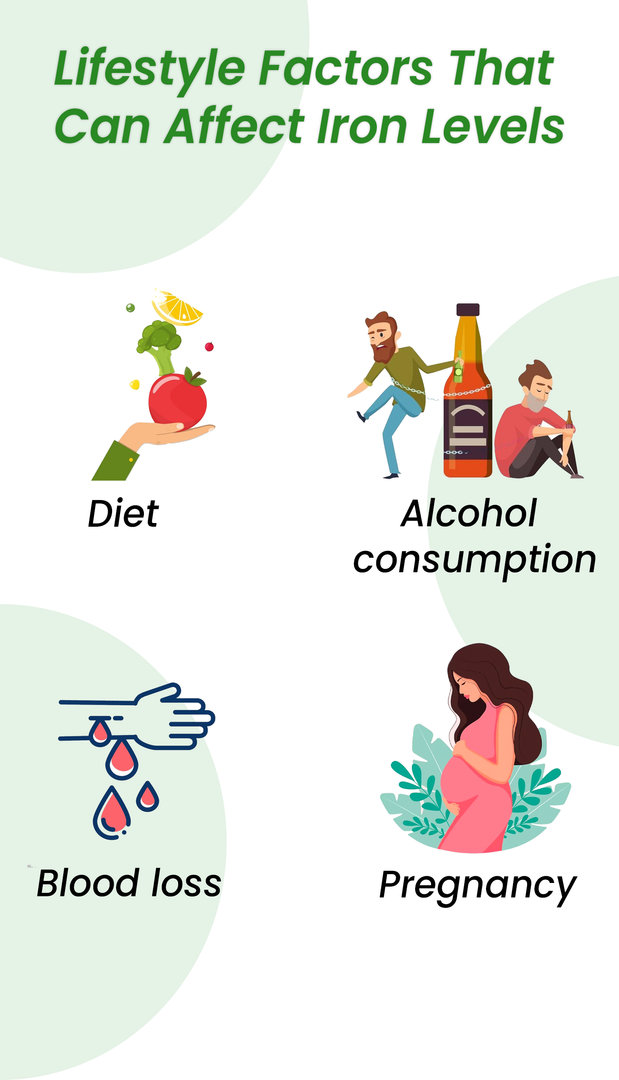
Below mentioned lifestyle factors may help in improving iron deficiency-
1. Diet: Eating a diet rich in iron-rich foods, such as lean red meats, poultry, fish, legumes, dark green leafy vegetables, nuts, and fortified grains, can help maintain healthy iron levels.
2. Exercise:
Regular exercise can increase the body’s ability to absorb iron, as well as help maintains healthy blood circulation.
3. Vitamin C Intake:
Vitamin C helps the body absorb iron more, so increasing vitamin C intake can help boost iron levels.
4. Alcohol Consumption:
Heavy alcohol consumption can interfere with iron absorption, so minimizing alcohol consumption is important for maintaining adequate iron levels.
5. Stress:
Prolonged stress can lead to a decrease in iron levels, so making time for relaxation and stress management is important for maintaining healthy iron levels.
6. Caffeine Consumption:
Caffeine can decrease iron absorption, so limiting caffeine intake can help ensure healthy iron levels.
It's essential to remember that regular check-ups with your healthcare provider are key to maintaining your health and well-being!

Other causes of skin pigmentation other than iron deficiency
Yes, there are many other causes of skin pigmentation besides iron deficiency. Here are some common examples.
- Sun exposure: Prolonged exposure to the sun's ultraviolet (UV) rays can cause an increase in melanin production, leading to darker skin color.
- Hormonal changes: Hormonal changes during pregnancy, menopause, or as a result of hormonal medications can cause hyperpigmentation, particularly on the face.
- Inflammatory skin conditions: Certain skin conditions, such as eczema or psoriasis, can cause changes in skin pigmentation.
- Medications: Some medications can cause hyperpigmentation as a side effect, such as certain antibiotics and chemotherapy drugs.
- Genetics: Skin pigmentation is determined by genetics, and some people may have a darker or lighter skin color.
- Age: As we age, our skin produces less melanin, leading to lighter skin color. But, certain areas of the skin, such as age spots, may become darker due to sun exposure.
- Trauma or injury: Trauma or injury to the skin, such as acne scarring or a cut, can lead to hyperpigmentation in the affected area.
As we now come to the end of this article, we hope that till know you have understood the role o iron in maintaining healthy skin!
Some causes of skin pigmentation can be serious and require medical attention, while others are harmless and can be managed with lifestyle changes or topical treatments.
So, if you are experiencing changes in your skin pigmentation, it's a good idea to talk to a doctor to determine the underlying cause and develop an appropriate treatment plan.
Reference:
https://www.ncbi.nlm.nih.gov/pmc/articles/PMC4468234/
https://www.thefourfountainsspa.in/
https://www.medicalnewstoday.com/articles/323808
https://www.healthline.com/health/anemia-rash



